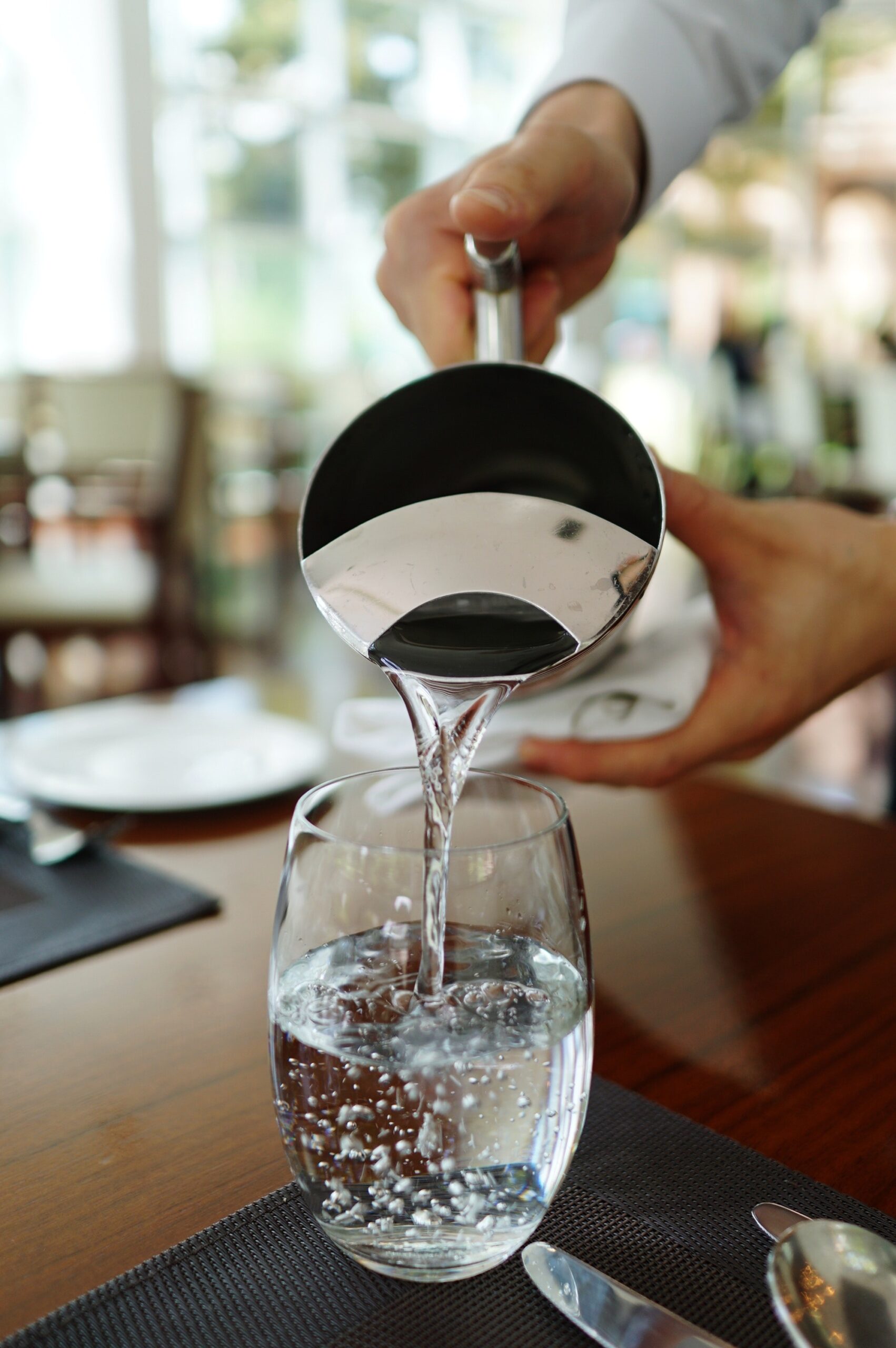In the pursuit of a healthy body and mind, people often overlook one critical aspect – hydration. Water serves as the lifeblood of our body’s functions, playing instrumental roles from transporting nutrients to managing body temperature and facilitating crucial biochemical reactions. One such notable role water plays is in weight management. Achieving optimal hydration can significantly impact one’s ability to maintain or lose weight. This article aims to illuminate the underrate yet profound connection between water consumption and weight loss — providing not only scientific insights but practical guidance on how to incorporate more water into daily routines for better health outcomes.
Understanding the Importance of Hydration
Understanding the Importance of Hydration for Overall Health
Hydration is paramount to maintaining vast aspects of human health, as the human body consists of about 60% water. It plays an essential role in numerous bodily functions, including temperature regulation, nutrient transport, waste removal, and maintaining healthy skin and joints. Without adequate hydration, the body cannot effectively perform these essential functions, which can lead to a range of health issues. Consequently, experts recommend consuming around eight, 8-ounce glasses of water each day (about 2 liters), although individual needs may vary.
Several scientific studies vividly illustrate the unfortunate consequences of inadequate hydration. Dehydrated individuals may experience fatigue, headaches, and even complications with cognitive function. Notably, a study published in the Journal of Nutrition observed increased mood and concentration problems in women who were mildly dehydrated. Another alarming long-term consequence of insufficient hydration is the possible impact on kidney health, leading to the formation of painful kidney stones.
Impact of Hydration on Metabolism and Weight Management
Water’s role extends beyond general health maintenance and into the realm of metabolism and weight management, which has a complex relationship with hydration. Metabolism refers to the process by which the body converts what you eat and drink into energy. Even at rest, the body needs energy for basic functions such as breathing, circulating blood, and repairing cells. This energy is generated through metabolic processes which require water. Hence, staying hydrated can help ensure your metabolism runs efficiently.
Additionally, there’s scientific evidence to support the assertion that drinking water can aid with weight loss. A study published in the Journal of Clinical Endocrinology and Metabolism discovered that drinking water increased metabolic rate by 30% in healthy individuals. Moreover, another research review found that increased water intake led to greater weight loss during diet and exercise intervention programs.
Water and Appetite Regulation
Drinking water before meals may help control appetite and food intake. According to a study in the British Journal of Nutrition, individuals who drank water before meals consumed fewer calories and experienced more significant weight loss compared to those who didn’t. Additionally, water can serve as a replacement for high-calorie beverages, consequently decreasing overall calorie intake.
Water plays a key role in our health and wellbeing, and it’s currently emerging as a helpful tool in weight management. It’s not just a passive component of our body’s structure, it’s an active participant in our overall health. Grasping this concept, and aligning our hydration habits with our weight goals, can prove to be beneficial. The correlation between maintaining good hydration levels and managing your weight suggests that straightforward strategies – such as increasing your water intake – can lead to substantial outcomes. Adopting these strategies might be the first step towards a healthier, better-hydrated you.

Water’s Impact on Appetite and Caloric Intake
The Importance of Water in Controlling Appetite and Lowering Caloric Intake
Water is an essential factor in controlling weight as it has a significant effect on our sense of hunger and satisfaction. Scientific studies indicate that adequate hydration could promote feelings of satiety, thus helping to control calorie intake. An interesting research study published in the Journal of Clinical Endocrinology and Metabolism discovered that drinking 500 ml of water led to a 30% increase in metabolism in both men and women. This metabolic boost commenced about 10 minutes after the water was consumed and peaked between 30-40 minutes subsequently.
Shifting from Calorically-Dense Beverages to Water
Replacing high-sugar, calorically-dense beverages with water is another effective weight management approach. A report by the Centers for Disease Control and Prevention (CDC) stated that beverages accounted for 20% of the total caloric intake in the average American diet. Many of these beverages, like soft drinks and sugary coffee beverages, are high in calories and low in nutritional value.
The American Journal of Clinical Nutrition featured a study which suggested that a decrease in liquid calorie intake had a stronger effect on weight loss than a decrease in solid calorie intake. Therefore, replacing these sugary drinks with water can significantly reduce caloric intake, while also keeping the body well hydrated.
Furthermore, increasing water intake can also be beneficial for those who are already following a weight loss diet. A study published in Obesity found that dieters who were hydrated lost 50% more weight compared to those who did not drink adequate water.
An Overview of Water’s Role in Weight Management
Research has often underscored the critical role water plays in our health, particularly in maintaining a manageable weight. Ensuring regular water consumption doesn’t just regulate your appetite, it also promotes feelings of fullness, which can ultimately lead to a reduced caloric intake. Consequently, making a conscious selection to introduce more water into your daily habits can become a small but significant step towards achieving sustainable and healthier weight loss goals.

Water’s Role in Exercise and Calorie Burning
Exploring the Connection between Water and Effective Exercise
Further emphasizing the importance of water, it is paramount for physical well-being and bolstering workout capacity. A body that’s well-hydrated sees an enhancement in workout performance, given that muscles are approximately 75% water. Apart from helping you maintain a steady body temperature, water also keeps your joints well-lubricated, a factor beneficial during rigorous exercises. Each of these results in longer, easier, and more productive workouts, assisting you in burning additional calories.
Contrastingly, dehydration can detrimentally affect physical performance. The inability of the dehydrated body to circulate blood efficiently hampers the oxygen supply to your muscles, leading to symptoms such as fatigue, dizziness, and confusion. Such adverse effects may hinder your workout performance and limit your ability to burn calories effectively, thus impacting your weight loss efforts.
The Thermogenic Effect of Water on Metabolism
Beyond its role in supporting physical exercise, water may aid in weight loss due to its thermogenic impact on the body. Thermogenesis is a metabolic process wherein your body burns calories to produce heat. An increase in this process can lead to weight loss.
Research suggests that drinking water can induce thermogenesis and increase your metabolism. A study published in the Journal of Clinical Endocrinology and Metabolism found that drinking about 17 ounces of water can increase a person’s metabolic rate by 30%. This means that consistently drinking water throughout the day could help your body burn more calories at rest.
However, the thermogenic effect is more significant after drinking cold water as your body uses energy to heat the water to body temperature. According to some research, drinking 48 ounces of cold water could potentially help you melt away an additional 70 calories per day—an effort-free way to aid your weight loss.
Additionally, water consumption can contribute to satiety – the feeling of being full. Drinking a glass of water before meals can make you feel more full, leading to less food consumption and a reduction in calorie intake.
An Overview
Staying properly hydrated is essential for achieving optimal physical function, promoting calorie burn via thermogenesis, and aiding in controlling calorie intake by boosting feelings of fullness. In essence, drinking an adequate amount of water may undeniably contribute to weight loss endeavors. Nevertheless, it’s crucial to understand that water intake is just one side of a well-rounded approach towards weight loss, which should encompass balanced diet and regular exercise as well.

Practical Tips for Incorporating More Water into Your Daily Routine
Delving Deeper: Water’s Part in Weight Loss
Evidence from scientific studies supports the significant role of water in weight loss efforts. A piece of research published in the Journal of Human Nutrition and Dietetics uncovered that dieters who upped their intake of water lost more weight than those who didn’t. Keeping the body well-hydrated facilitates more efficient fat burn and waste elimination. Moreover, quenching your thirst with water can often help keep hunger pangs at bay, thereby reducing the likelihood of consuming unnecessary calories.
Recommended Daily Water Intake for Weight Loss
Experts recommend drinking at least half of your body weight in ounces of water per day. This means if you weigh 150 pounds, you should be consuming at least 75 ounces of water daily. This is merely a baseline, and physical activity, climate, and overall health can require more hydration.
Making Water Consumption More Appealing
Drinking plain water can sometimes feel boring. To make it more appealing, consider adding fresh fruits like strawberries, lemons, or cucumbers to your water for a burst of flavor. Using a water tracking app on your phone can also make it fun and competitive to reach your daily goal.
Avoiding Water Toxicity
While water can aid in weight loss, it’s important not to drink too much, as it can lead to water toxicity or hyponatremia. This condition arises when you consume so much water that it dilutes your blood’s sodium levels. Symptoms include nausea, seizures, and in extreme cases, coma or death. Do not exceed a daily water intake of 100 ounces without consulting with a health professional.
Case Studies: Successes with Water and Weight Loss
Multiple case studies demonstrate the power of water in aiding weight loss. One woman, for instance, drank a gallon of water every day for a month. She not only noticed an improvement in her skin and sleep, but also a significant decrease in her appetite, resulting in successful weight loss.
Expert opinion also affirms this approach. Nutritionist Jenna Hope says, “Water can aid weight loss by diluting the concentration of sodium in the body. This helps to reduce water retention and bloating.”
Practical Tips to Incorporate More Water Into Your Routine
Establishing a routine can help increase your water intake. Start the day with a glass of water just after waking up. Carrying a reusable water bottle can remind you to drink throughout the day. If you often forget to drink, setting a reminder on your phone or computer can be an effective prompt. Consider replacing sugary drinks with water at meals as another method to meet your hydration goals.
By understanding water’s role in weight loss and taking practical steps to increase your intake, you can harness this simple yet powerful tool in your weight loss journey.

Optimal hydration has a non-negotiable place in a comprehensive weight management plan, almost as important as diet and exercise. The transformative power of water lies in its ability to support a healthy metabolism, modulate appetite, foster better caloric burn, and replace high-energy drinks. By implementing the practical tips and strategies discussed throughout this discourse, such as increasing daily water consumption, replacing calorie-dense beverages with water, and ensuring adequate hydration during exercise, individuals can actively contribute to their weight loss efforts. Remember, each step towards proper hydration is a significant stride towards sustained health and well-being.
